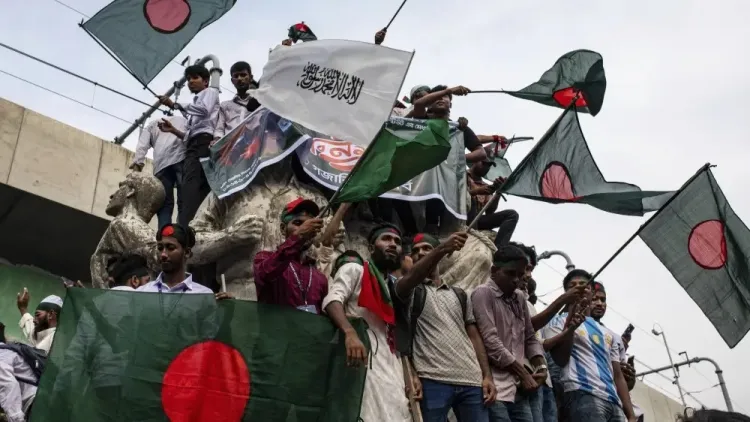Bangladesh's Growing Pro-Pakistan Movement: A Threat to Its Independence
Bangladesh is currently witnessing rising political unrest and disturbing signs of a shift towards pro-Pakistan sentiment. A new wave of violence and political turmoil has emerged, with a strong alliance of Islamist forces pushing to reverse Bangladesh's hard-earned independence from Pakistan. This movement, fueled by certain segments of the country's political and social spheres, threatens to undo the progress Bangladesh made since its separation from Pakistan in 1971.

One of the most significant recent events was the attack on the family home of Sheikh Mujibur Rahman, the founding father of Bangladesh. This site, which is not just a physical structure but a symbol of the country’s independence, was torched and vandalized by demonstrators. The destruction of this historical landmark sends a chilling message about the shifting political winds in Bangladesh. The house also holds the tragic history of Rahman and his family’s assassination in 1975, an event that profoundly shook the nation. The attack came after a speech by former Prime Minister Sheikh Hasina, in which she challenged the interim government, triggering a wave of unrest led by demonstrators, many claiming to be students.
However, questions arise as to whether this unrest is genuinely student-led or part of a broader, more sinister political movement. Following the violence, the ousted Prime Minister condemned the attack, questioning the motives behind the destruction. In her statement, she expressed disbelief over the disrespect towards a house that represented the memory of the country’s hard-fought independence.
Meanwhile, the current interim government under Muhammad Yunus has struggled to contain the violence and protect minorities, with reports from Human Rights Watch highlighting abuses by security forces. This political climate is becoming increasingly influenced by pro-Pakistan elements, with the government and society gradually shifting towards Islamabad.
Several signs indicate a concerning trend: for the first time in decades, Victory Day celebrations on December 16 were subdued, with no mention of Sheikh Mujibur Rahman in the government's Victory Day speech. Statues of Rahman have been destroyed, and holidays marking his birth and death anniversaries have been canceled. Adding to this shift, the government has taken steps to strengthen ties with Pakistan, including relaxing visa requirements, resuming direct flights, and even placing orders for artillery and ammunition from Pakistan.
The rise of Jamaat-e-Islami, an Islamist political party previously banned by Sheikh Hasina’s government, has further fueled these tensions. The group now feels emboldened, leading anti-minority demonstrations and contributing to the increasingly pro-Pakistan sentiment in Bangladesh.
As these developments unfold, Bangladesh seems to be gradually drifting back into Pakistan's sphere of influence—a far cry from the struggles of 1971 when Bangladesh fought for its independence from Pakistan’s brutal military regime. The threat to the nation’s autonomy is now more internal, but its consequences could prove just as devastating as the violent past.
What's Your Reaction?















